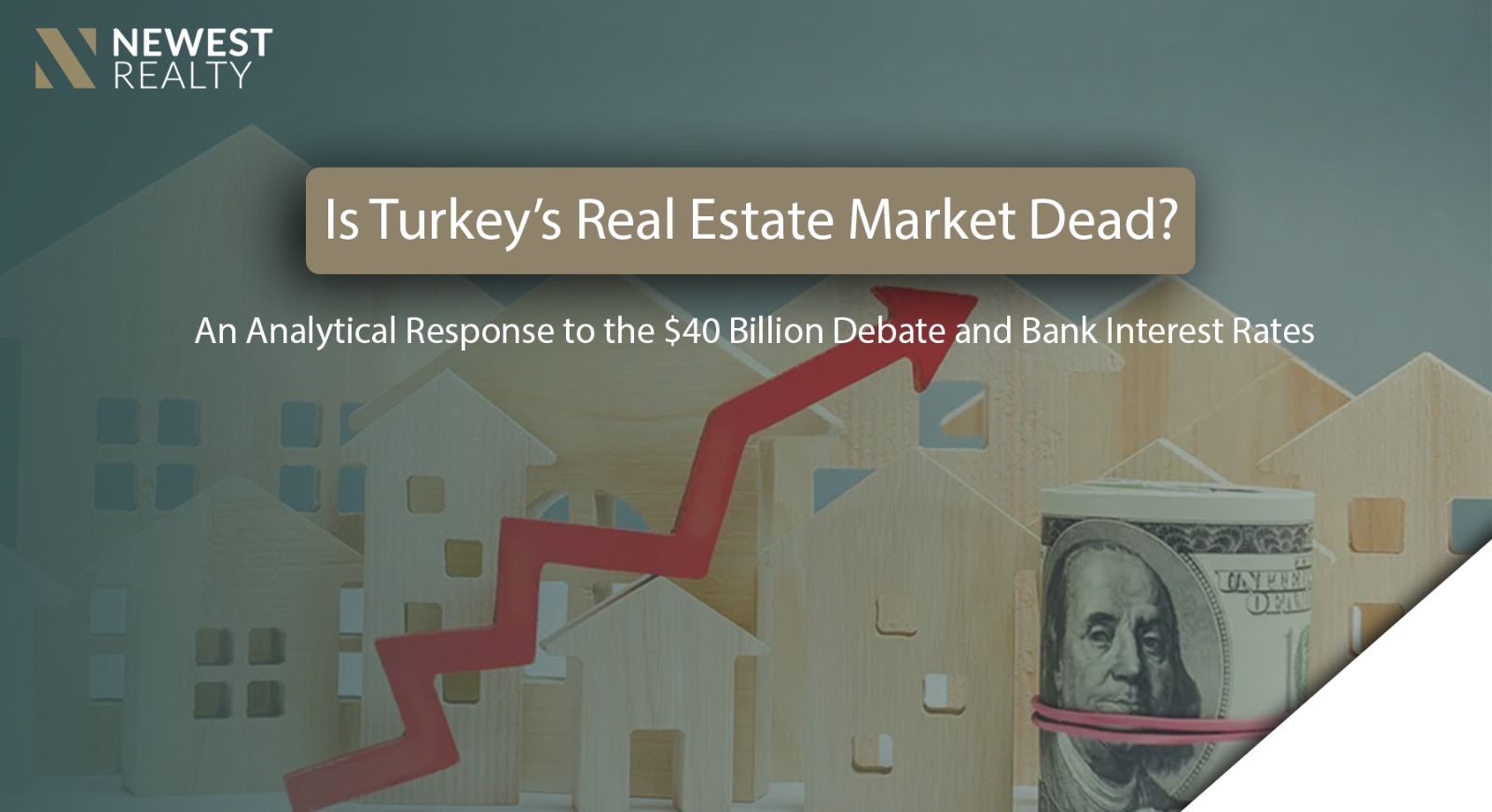Is Turkey’s Real Estate Market Dead? An Analytical Response to the $40 Billion Debate and High Interest Rates
In one comment, it was claimed that Turkey’s real estate market is “dead,” that the country needs $40 billion annually for infrastructure and construction, and that Turks only buy property through bank loans—making today’s prices unjustifiable with interest rates above 50%. But is this really accurate? Let’s break it down point by point.
1. Does Turkey really need $40 billion annually for infrastructure?
The figure is correct in terms of total investment volume, but it does not mean the Turkish government directly covers this amount from its budget. The reality is that over 60% of infrastructure projects in Turkey over the past 20 years have been financed through foreign investment and Public–Private Partnerships (PPP).
Examples: the E6 highway, the Eurasia Tunnel, and even Istanbul’s new airport were all developed with external financing or joint ventures, where foreign companies fund and operate the project for a fixed period before transferring ownership back to the state.
Therefore, the $40 billion figure is not a direct burden on the government budget—it is distributed between local taxes and foreign investments, which clears up the misunderstanding in that comment.
2. Do Turks only buy property with loans?
The claim that Turks only purchase real estate via bank loans is inaccurate. The reality is quite different:
- Only 30–40% of property transactions in Turkey are mortgage-based.
- The majority (60–70%) are financed directly by personal savings or peer-to-peer sales.
A significant portion of Turks avoid loans altogether for religious and social reasons—more than 50–60% of the population prefers to purchase with cash to avoid paying interest.
3. What about the high interest rates?
It is true that interest rates temporarily exceeded 50%, but today they stand at 43%. Even at this level, most buyers do not rely entirely on loans. Instead, they use them as partial financing (20–40% of the property value).
The claim that higher rates mean “no buying activity” is unrealistic. For Turks, real estate is a safe haven against currency depreciation and inflation. This is evident in the fact that transactions have continued despite economic challenges.
4. Are property prices in Turkey unjustified?
Demand in Turkey’s housing market is not driven solely by locals. Foreign demand also plays a crucial role, boosted by benefits such as:
- Citizenship through real estate investment.
- Long-term residence permits.
- Attractive rental yields (6–8% annually).
These factors help stabilize prices even during economic slowdowns and prevent a full-scale market collapse.
5. Is the Turkish real estate market really “dead”?
The simple answer: No.
- Yes, there is a temporary slowdown due to high interest rates and tighter monetary policies.
- But the market has not stopped; there is still strong cash-based activity, particularly in new earthquake-resistant projects.
- Foreign demand also adds liquidity and supports overall market activity.
Conclusion
The claim that Turkey’s real estate market is “dead” is misleading because it overlooks several key facts:
- Infrastructure investments are not fully government-funded.
- Most Turks purchase property in cash, not via mortgages.
- Turkey’s real estate remains one of the strongest emerging markets globally thanks to its yields, investment opportunities, and citizenship/residency incentives.
In other words, the market is undergoing a healthy correction—not a death, as some might assume.


